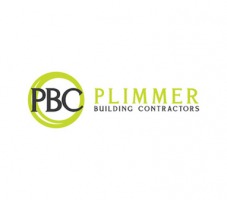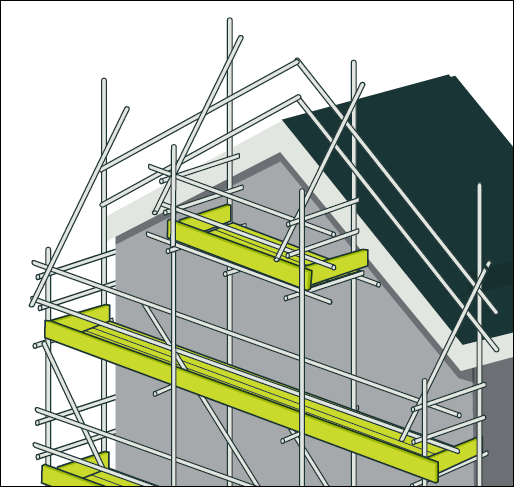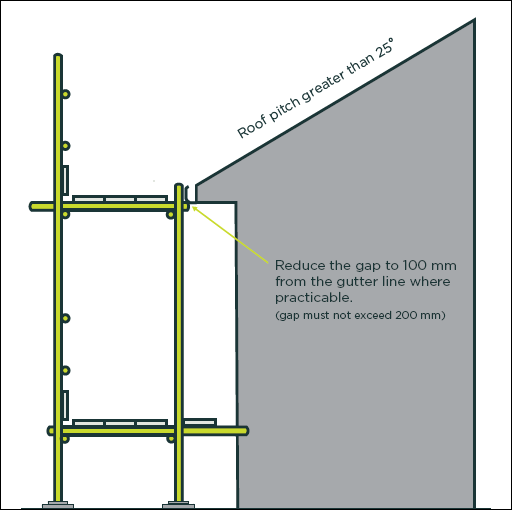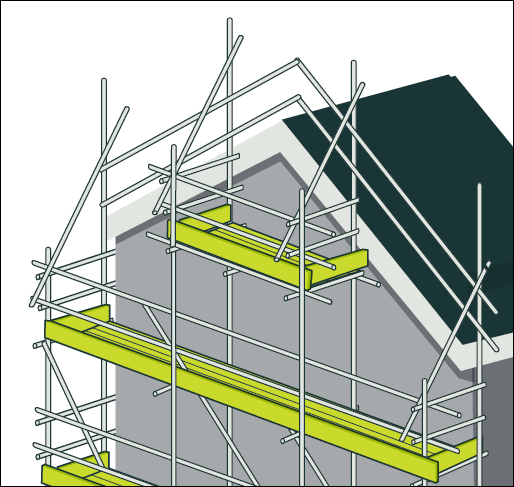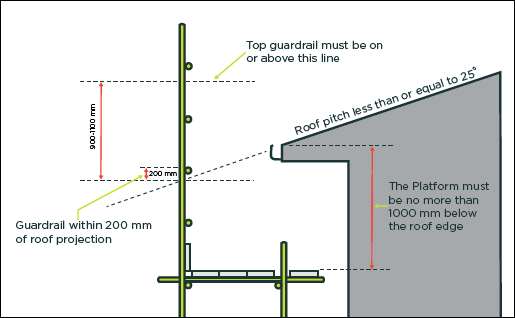Title Page
-
Site Address
-
Prepared By
-
Date & Time
-
Photos Of Site Boundary
-
Notes
-
Project Manager/Site Foreman
-
TRADES DOING WORK ON SITE Not necessarily on site at time.
- BLOCKLAYERS/BRICKIES/STONEMASONS
- BUILDERS
- CONCRETE PUMPERS
- CONCRETERS
- ELECTRICIANS
- ENGINEERS/FABRICATORS
- EXCAVATORS/LANDSCAPING
- GIB STOPPERS/PLASTERERS
- INSULATORS
- PAINTERS/DECORATORS
- PLUMBERS
- ROOFERS
- SCAFFOLDERS
- TILERS
- SAFETY NET INSTALLERS
- SOLAR PANEL INSTALLERS
- FLOORING INSTALLERS
- CARPET LAYERS
- TRUCK DRIVERS
- HIAB OPERATORS
- OTHER...
-
If Other Name Trade
-
If Other Name Trade
-
If Other Name Trade
-
Name Trade
SITE ADMINISTRATION & CONTROL
-
Site Boundaries Secure And Work Contained In Site
-
Hazard Board & Signage At Site Entry
-
Hazard Board Complete With Contact Details, Current Hazards, Signed And Dated At Weekly Intervals Or When Site Conditions Change
-
What's Missing?
- Date
- Current Site Hazards
- PPE Requirements
- Contact Details
- Signature
- Other
-
What Is Missing?
-
Site Office Clearly Identified & Safe Access Indicated Prior To Site Entry
-
SSSP Onsite & Complete
-
Safety Inductions Log Available & Complete
-
Site Visitor Log Available & Completed
-
Toolbox Safety Meetings Up To Date
-
Fire Fighting Equipment Available
-
Fire Extinguisher Type & Number Sufficient
-
Fire Extinguisher Service Certificate <12 Months
-
Is a First-Aid Kit Available On Site?
-
Injury Register / Near Miss Register On SIte
-
Evacuation Plan In Place
-
All Emergencies Included
-
Evacuation Trial Completed <12 Months
-
Are There Overhead Power lines?
-
Have The Power Lines Company Been Notified and Close Approach Permit Applied For And Received? <br><br>This is needed for any work within 4 metre's of the power lines including, but not limited to the following work activities - deliveries from hiab trucks, craning activities, machinery use, scaffolding, paint rolling.
-
Take The Following Course Of Action:
Do Not Work Or Allow Any Work Activity Within 4metres of the Lines
Contact Project Manager/Foreman - Contact Lines Company and apply for close approach permit and to seek further advice. -
Have Underground Services Been Located? i.e. Power, Water, Waste, Any underground services.
-
Do Not Allow Any Digging Work Activity Until Services Have Been Located
Contact Project Manager,/Foreman -
Is There Any Need To Consider A Traffic Management Plan. This would be considered when site activities are extending onto the road or footpath outside the construction site.
-
Traffic Management Plan In Place
-
Organise aTraffic Management Plan. Any Work Creating A Risk Should Have Control Measures implemented Or The Work Altered Until A Traffic Management Plan Is In Place.
GENERAL SITE TIDINESS & ACCESSWAYS
-
Clear, Safe Access To Work Areas
-
Stairways & Access-ways Clear
-
Hoardings / Fence & Gates Secure
-
Loose Materials Secure From Wind
-
Construction Waste Materials Stored Safely Or In Waste Bins For Removal
SITE FACILITIES
-
Toilets - Clean, Adequate, & With Washing Water
-
Break Areas - Clean, Adequate, & With Potable Water
-
Tool Sheds - Clean, Adequate & Secure
PERSONAL SAFETY EQUIPMENT (PPE)
-
PPE Signage Displayed & Legible
-
Correct Footwear Being Worn
-
Workers Name & Employer
-
Workers Employer
-
Workers Name & Employer
-
Workers Name & Employer
-
Workers Name & Employer
-
Workers Name & Employer
-
Workers Name & Employer
-
Workers Name & Employer
-
Workers Name & Employer
-
Workers Name & Employer
-
Workers Name & Employer
-
Workers Name & Employer
-
Workers Name & Employer
-
Workers Name & Employer
-
Workers Name & Employer
-
Workers Name & Employer
-
Workers Name & Employer
-
Workers Name & Employer
-
Workers Name & Employer
-
Workers Name & Employer
-
Worker Is Not To Go Back To Task Until PPE Is Put On.
-
Hi-Viz Vests / Clothing Being Worn - Must Be Worn Around Moving Traffic i.e. Craning Activities, Hiab, Concrete Pumps
-
Eye Protection Being Used - Note - Fashion Sunglasses Are Not Safety Glasses.
-
Are The Safety Glasses In Good Condition?
-
Worker Who Needs New Glasses
-
Workers Name & Employer
-
Workers Employer
-
Workers Name & Employer
-
Workers Name & Employer
-
Workers Name & Employer
-
Workers Name & Employer
-
Workers Name & Employer
-
Workers Name & Employer
-
Workers Name & Employer
-
Workers Name & Employer
-
Workers Name & Employer
-
Workers Name & Employer
-
Workers Name & Employer
-
Workers Name & Employer
-
Workers Name & Employer
-
Workers Name & Employer
-
Workers Name & Employer
-
Workers Name & Employer
-
Workers Name & Employer
-
Workers Name & Employer
-
Worker Is Not To Go Back To Task Until PPE Is Put On.
-
Hearing Protection Being Used
-
Workers Name & Employer
-
Workers Employer
-
Workers Name & Employer
-
Workers Name & Employer
-
Workers Name & Employer
-
Workers Name & Employer
-
Workers Name & Employer
-
Workers Name & Employer
-
Workers Name & Employer
-
Workers Name & Employer
-
Workers Name & Employer
-
Workers Name & Employer
-
Workers Name & Employer
-
Workers Name & Employer
-
Workers Name & Employer
-
Workers Name & Employer
-
Workers Name & Employer
-
Workers Name & Employer
-
Workers Name & Employer
-
Workers Name & Employer
-
Worker Is Not To Go Back To Task Until PPE Is Put On.
-
Masks / Respirators Being Used
-
Are Dust Masks In Good Condition And Suitable For The Task? i.e. Good Fit, Vapour/Dust Masks
-
Work Should Be Stopped And Appropriate PPE Provided.
-
Workers Name & Employer
-
Workers Employer
-
Workers Name & Employer
-
Workers Name & Employer
-
Workers Name & Employer
-
Workers Name & Employer
-
Workers Name & Employer
-
Workers Name & Employer
-
Workers Name & Employer
-
Workers Name & Employer
-
Workers Name & Employer
-
Workers Name & Employer
-
Workers Name & Employer
-
Workers Name & Employer
-
Workers Name & Employer
-
Workers Name & Employer
-
Workers Name & Employer
-
Workers Name & Employer
-
Workers Name & Employer
-
Workers Name & Employer
-
Worker Is Not To Go Back To Task Until PPE Is Put On.
-
Seasonal Clothing Considered
-
Are Hard Hats Required For Activities Onsite
-
Are Hard Hats Being Worn By All Workers?
-
Workers Name & Employer
-
Workers Employer
-
Workers Name & Employer
-
Workers Name & Employer
-
Workers Name & Employer
-
Workers Name & Employer
-
Workers Name & Employer
-
Workers Name & Employer
-
Workers Name & Employer
-
Workers Name & Employer
-
Workers Name & Employer
-
Workers Name & Employer
-
Workers Name & Employer
-
Workers Name & Employer
-
Workers Name & Employer
-
Workers Name & Employer
-
Workers Name & Employer
-
Workers Name & Employer
-
Workers Name & Employer
-
Workers Name & Employer
-
Worker Is Not To Go Back To Task Until PPE Is Put On.
-
Harness Inspections Completed And Current Certification
-
Workers Trained In Harness Use And Working At Heights
-
Stop All Work At Heights. Complete A Task Analysis Before Work Gets Underway Again.
ELECTRICAL EQUIPMENT
-
Main Board Lockable / Weatherproof / RCD / Certificate of Compliance (CoC), a Record of Inspection (RoI) and an Electrical Safety Certificate (ESC).
-
Equipment In Good Condition - i.e. no exposed primary insulation, plugs and cords in good condition, guards in place and secured, casing not damaged, tools running as they should be.
-
REMOVE ANY PLANT FROM SITE THAT IS DAMAGED OR NOT GUARDED PROPERLY
IT IS NOT TO BE BOUGHT BACK ONTO SITE UNTIL FIXED.
Guards can be removed from table saws for scoring timber but must be put back immediately after the task. -
Current Tagged Plant Or Inspection Routine In Place - If tag out of date or no tag look at condition of tool, ensure no primary insulation, no broken casing, guards in place. Ensure plant is safe before using. Ensure visual checks are done before plant. Ensure documented regular inspection routine is in place.
-
Current Leads Tagged & Damage Free -If leads are not tagged ensure that the lead is in good condition with no exposed primary insulation, damaged shrouds and no damaged pins.
-
Appropriate Guards On Equipment
-
Leads Safely Placed
-
Adequate Temporary Lighting
DUST AND AIRBORNE CONTAMINANTS
-
Are there activities that create dust and airborne contaminants on site?<br>i.e. cutting, grinding, demo
-
Have other trades in the local area been notified of the risk and PPE requirements.
-
Is there a designated area for cutting?
-
Stop work and set up a designated area for cutting.
-
Is there someway to isolate the dust on site? i.e. vacuum extraction, water suppression
-
If Silica dust is involved no cutting/grinding is to be undertaken until extraction or suppression set up is in place.
-
Is A Dust Mask Being Used As Well As Secondary Protection?
-
Ensure Worker Has & Uses A Dust Mask.
-
WorkSafe - Managing Dust In Construction
https://worksafe.govt.nz/topic-and-industry/dust-and-fumes/dust/
LADDERS
-
Are ladders on site?
-
Are the ladders in good condition? I.e. No bends or buckles, all rivets in place, stays in good working condition, feet not worn through and in good condition, steps free of debris.
-
Ladders that are not in a good condition must be removed from site immediately.
-
Trade Rated
-
Remove ladder from site and find suitable option.
-
Working Within Manufacturers Recommendations
-
Stop work on ladder and find an appropriate ladder or appropriate working platform.
https://worksafe.govt.nz/topic-and-industry/working-at-height/equipment-for-working-at-height/ -
Site Manager To Contact Contractor And Forward On Information And Create Follow Ups
https://worksafe.govt.nz/topic-and-industry/working-at-height/equipment-for-working-at-height/ -
Three Points Of Contact
-
Are Ladders Used For Access Being Secured At The Top & Bottom
-
WorkSafe - Equipment for Working at Height
https://worksafe.govt.nz/topic-and-industry/working-at-height/equipment-for-working-at-height/ -
WorkSafe Guidelines - Safe working with ladders and stepladders
https://worksafe.govt.nz/dmsdocument/20-safe-working-with-ladders-and-stepladders
MOBILE SCAFFOLDING
-
Is Mobile Scaffolding On Site And In Use Or Being Setup For Use
-
Is the scaffold suitable for the purpose for which it is being used?
-
Stop using the scaffold, reassess the situation and re-do a task analysis immediately.
-
Does the mobile have ladder access to all deck levels?
-
Is the mobile fully decked, with the decks secured from moving?<br>If the mobile is not fully decked does it have guardrails to protect the voids?
-
Are the top guardrails between 900 mm and 1100 mm high?
-
Stop Using Scaffold, Set It Up As Per Manufacturers Recommendations.
-
Are the castors lockable and marked with their SWL?
-
Is the scaffold stable (3 to 1 for 2 m or above, 2:1 for under 2 m) see below?
-
Is the mobile more than 2.0 m away from the edge of a building and any floor penetrations, voids etc?
-
Does the mobile have a plan brace if not fully decked within 3 m of the base?
-
Are the people using the mobile trained in its use?
FIXED SCAFFOLDING
-
Is there scaffolding present of site?
-
Does the scaffold have a tag system attached to the entry point?? Does not include mobiles where the platform height is lower than 2 metres.
-
Does the tag say who erected it, show their contact details and when they erected it? - Must have clear and legible details on back of scaffold tag including the name and contact phone number of the certified scaffolder (or erector if under 5 m).
-
Does the tag show the purpose and duty loading?
-
Are weekly inspections documented on back of scaffold tag?
-
Are Installer Procedures In Place - Task Analysis/Job Safety Analysis/Safe Work Method Statement in place following the Good Practice Guidelines?
-
WorkSafe NZ Notifiable Work Notifications Completed
-
Is the scaffold stable?
-
Does the scaffold have base plates or base jacks centred on the sole boards?
-
Scaffold needs inspection and repairs. Contact scaffolder immediately. If scaffold is moving or unstable removed scaffold tag, stop access at gates and advise all trades on site it is not to be used.
-
Ladders / Stairs Installed Correctly, All ladders must extend 900mm past the platform they are giving access to.
-
Ladders must be installed and set up so they are fit for use and appropriate access is available to the working platforms.
Scaffold needs inspection and repairs. Remove scaffold safe tag, . Contact scaffolder immediately. Stop access at gates and advise all trades on site scaffold is not to be used. -
Are All Handrails / Midrails Installed - Handrail Must Be Between 900mm and 1100 With The Midrail Set In The Middle Of The Handrail And Platform.
-
Scaffold Must Not Be Used.
Remove Tag, Secure All Entrances With Do Not Use Signs
Contact Project Manager & Scaffolder -
Toe Boards Installed - Not required at ground level due to low level of risk.
-
Contact Site Manager and Scaffolder's to install Toe Boards. Only let scaffold be used as access tool, not for work.
-
Are Platforms an Planks Fixed or Secured
-
Scaffold is Not Safe For Use.
Take The Following Course Of Action
- Contact Project Manager and Scaffolder - Scaffolders Details Should Be On Tag
- Pull Scaffold Safe ticket,
- Tell All Current And Future Trades It Is Out Of Action Until Notified,
- Put Signage At All Access Points Saying Scaffold Not Safe. -
Work Platforms Clear
-
Organise a clear up of the scaffolding to ensure appropriate access.
-
Headroom Clear
-
Contact Project Manager and Scaffolder.
-
Does the building have gable ends?
-
Does the building have gable end protection?
-
Roof should have gable protection similar to that in the picture. If it does not then change the answer to "no" and contact the scaffolder.
-
Put controls in place so that no work is undertaken within 2 metres of the gable end. Contact scaffolder to install gable ends.
-
Screening Installed - Should be in place for any scaffold next to public roads where materials could fall on the public.
-
Scaffold Good Practice Guidelines
https://worksafe.govt.nz/topic-and-industry/working-at-height/scaffolding-in-new-zealand/#lf-doc-18833
ROOFING WORK
-
Is There Roofing Work Underway - Includes Installation Of Trusses And Rafters
-
Is there scaffold set up on site that provides adequate protection for all roofing work?
-
A task analysis must be produced and followed for all areas where there is no protection. If it is work that can be measured in minutes, not hours working from a harness may be appropriate.
-
Is it short duration work? i.e Work that can be measured in minutes, not hours?
-
This situation could be appropriate for use of a harness to complete the task.
Complete a task analysis/safe work method statement prior to task and ensure all controls are in place before work begins on the roof.
THIS JOB MUST NOT BEGIN UNLESS TASK ANALYSIS IS PRODUCED AND FOLLOWED -
Ensure suitable edge protection in installed then complete another task analysis or safe work method statement prior to beginning the task.
-
Where the roof is more than 25 degrees in pitch, is the platform within 300mm's of the roof or trusses? <br>See image below
-
No roofing work to be done until scaffold is at appropriate levels.
Contact Project Manager & Scaffolder -
-
Where the roof is less than 25 degrees in pitch, is the platform within 900mm's of the roof or trusses? <br>See image below
-
No Work To Be Undertaken.
Contact Project Manager and Scaffolder. -
Is there a form of fall protection in place - i.e. trusses, nets, soft fall systems?
-
Is there gable end protection in place? See image
-
-
No roofing work to be done until scaffold is at appropriate levels.
Contact Project Manager & Scaffolder -
-
WorkSafe - Working On Roofs Good Practice Guidelines
https://worksafe.govt.nz/topic-and-industry/working-at-height/roofs/working-on-roofs-gpg/ -
WorkSafe - Working at Height Guidelines
https://worksafe.govt.nz/topic-and-industry/working-at-height/
FALL HAZARDS
-
Floor Edges / Floor Openings Protected
-
All work within 2 metres of the void must be stopped.
A plan must be put in place immediately so that the fall is managed, until such time as a hard fixing is in place ensure a physical boundary is set up so that workers do not walk within the ares. -
Void Fall Areas Protected
-
WorkSafe Working At Height Guidelines
https://worksafe.govt.nz/topic-and-industry/working-at-height/
EXCAVATIONS
-
Are there trenches/ditches/excavations on site?
-
Is A Safe Work Method Statement On Site?
-
Stop Work And Fill Out Form If Work Not Completed
-
Are Trenches Being Secured?
-
Are All Reinforcing Rods Being Capped
-
Open Excavations Correctly Shored
-
Fall Risks Assessed & Controlled
-
Excavation Machinery / Equipment Procedures In Place
-
Licensed / Authorised / Competent User Checks Completed
-
WorkSafe NZ Notifiable Work Notifications Completed
-
Unsure? Check what's require to be notified in the following link.
https://forms.worksafe.govt.nz/hazardous-work-notification -
WorkSafe Excavation Guidance
https://worksafe.govt.nz/topic-and-industry/excavation/ -
WorkSafe - Code of Practice for Powder Actuated Tools
https://worksafe.govt.nz/topic-and-industry/power-tools/powder-actuated-tools/
HAZARDOUS SUBSTANCES
-
Are There Any Chemicals On Site?
-
Are workers trained in the safe use, handling and storage?
-
Operators have and are using required PPE
-
Emergency/Clean up plan in place should a spill or incident happen?
-
If Flammable Is A Fire Extinguisher Available?
-
Correctly Stored - Containers in good condition away from electrical plant, power points and incompatible substances.
-
Safety Data Sheets/Safety Available
-
Warning Signage Adequate
-
WorkSafe - Hazardous Substances
https://worksafe.govt.nz/topic-and-industry/hazardous-substances/about-hazardous-substances/ -
WorkSafe Hazardous Substance Guidance
https://worksafe.govt.nz/topic-and-industry/hazardous-substances/
POWDER ACTUATED TOOLS
-
Are There Powder Actuated Tools On Site For Use Or In Storage?
-
Powder Actuated Tools Securely Stored
-
Powder Actuated Tools - Current
-
Operator Procedures In Place
-
Powder Actuated Tools Signage On Site
-
Licensed / Authorised / Competent User Checks Completed
COMPRESSED AIR UNIT
-
Is There A Compressed Air Unit On Site
-
In Good Condition Including Electrical Cords
-
Appropriate Guards Fitted On Compressor And Tools
-
Operator Trained In The Safe Use Of Tools and Compressor
SITE COMMENTARY
-
Add signature
